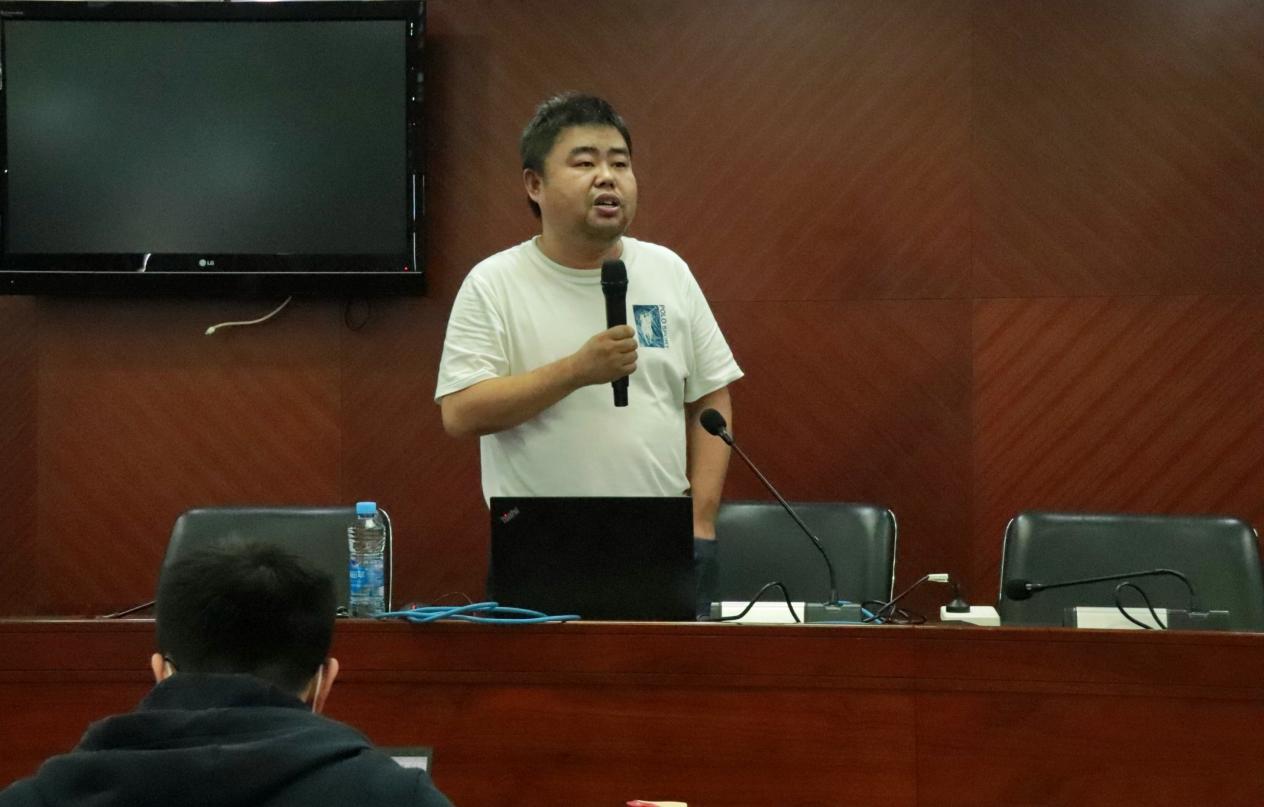On the afternoon of May 24th, Associate Professor Wang Yuelong brought a lecture titled "Where is the way to reform the classification of state-owned enterprises? --Evidence from the splitting of the Ministry of Railways and the restructuring of local railroad bureaus", the lecture was hosted by Wang Shoukun, vice president of the College, and some of the faculty members and postgraduates were present to listen to the lecture.

At the beginning of the lecture, Associate Professor Wang Yuelong firstly explained the two major backgrounds of the selected topic, one is the national classification to promote the reform of state-owned enterprises, and the other is that the railroad industry has gone through the government-enterprise separation and corporate system reform successively. Then through the combing of domestic and foreign related studies, it is found that most of the existing studies use industrial enterprises or listed companies to analyze the whole industry samples, and seldom consider the heterogeneity of the effect of restructuring of state-owned enterprises in different industries, which can not reflect the requirements of the era of classified reform. Therefore, this paper chooses the railroad industry, which has experienced two exogenous impacts of government-enterprise separation and corporate reform, as the research object, and provides policy suggestions on what forms of reform measures should be adopted for commercial second-class SOEs with the characteristics of natural monopoly, public welfare and national security attributes.
Then Associate Professor Wang Yuelong introduces the theoretical hypothesis, research samples and identification strategy, estimation results and mechanism analysis in turn, and finally concludes that for the reform of state-owned enterprises like railroads, which have the nature of natural monopoly, social public welfare and national livelihood at the same time, the reform of the enterprise's own governance structure may be more effective than the external reform of separating the government and enterprises from the top to the bottom, because of its public welfare and national security attributes, the state, at this stage, must be completely wholly owned or absolutely controlled by the service. Must be completely wholly-owned or absolute control services, at this time the nominal separation of government and enterprises can not fundamentally solve the lack of state-owned property rights of the contributors, as well as the lack of incentives for corporate executives insider control problems, and these only to corporate restructuring of the enterprise and through the establishment of the Board of Directors, Supervisory Board of these modern enterprise system, so that the directors and supervisors to more shareholding, the formation of corporate stakeholders in the common governance, for the reduction of all kinds of costs including enterprise management costs, including all kinds of costs, to improve the efficiency of state-owned enterprises has an important role.

During the lecture, teachers and students of our college had a positive interactive discussion with Associate Professor Wang Yuelong. Chen Ming, Xi Mingming, Xiao Wenhai and many other teachers and students were interested in the research content of Associate Professor Wang Yuelong and actively asked him questions. The main issues discussed include but not limited to: the explanation mechanism needs to be improved, how to further exclude the influence of other contingent factors, how to measure the performance of enterprises, whether the effect of increasing employee wages on enterprise performance can be a mechanism, the analysis of heterogeneity, and whether the results of the study correspond to the conclusions of the study, and so on. Associate Professor Wang Yuelong answered all the questions from teachers and students.

At the end of the lecture, Associate Dean Wang Shoukun of our college expressed his gratitude to Associate Professor Wang Yuelong for his wonderful report and encouraged the students present to actively conduct academic research, learn the connotation of various econometric methods, pay attention to the internal logic, and deeply plumb the meaning of economics behind.

